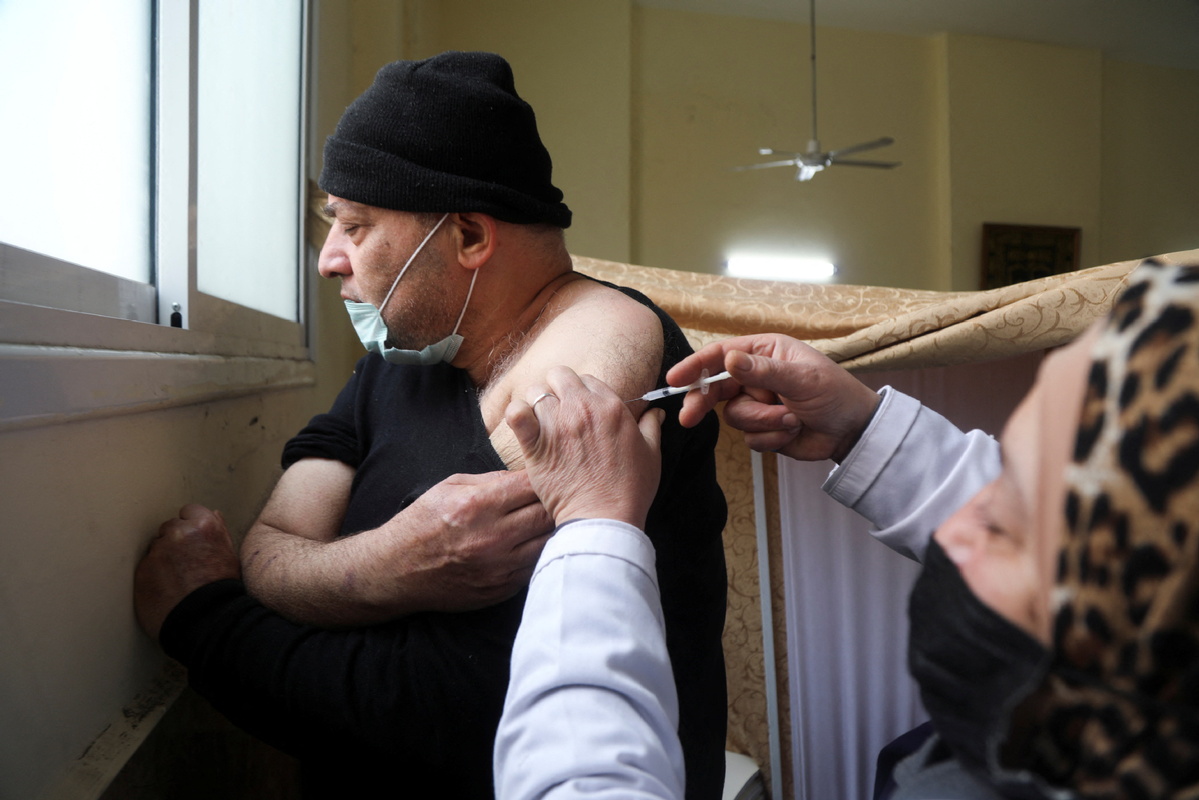Conflict areas lagging behind in vaccinations
By EDITH MUTETHYA in Nairobi, Kenya | China Daily | Updated: 2022-05-18 10:05

As the world pursues vaccine equity to end the COVID-19 pandemic, the International Committee of the Red Cross has warned that people living in war zones risk being the very last to receive vaccines.
The humanitarian organization said more than half of the 25 countries with the lowest vaccination rates in the world are embroiled in armed conflict and violence.
The organization said there are more than 50 million people living in areas controlled by nonstate armed groups, and the vast majority of them have no access to COVID-19 vaccines.
"Two years on, the greatest barrier we face for a return to normalcy remains the risk presented from the rapid spread of new and potentially deadly virus variants," said Sophie Sutrich, head of the ICRC's COVID-19 management team, in a statement on Tuesday.
Sutrich said controlling the virus will only be possible if everyone is included in vaccination efforts, including those in hard-to-reach conflict zones.
Unfortunately, healthcare workers in conflict zones often come under fire or are forced to flee.
"When doctors, nurses, clinics and hospitals where they work aren't protected by parties to a conflict, their entire communities suffer. It often means people are left with nowhere to go to seek care, let alone COVID-19 vaccines," the ICRC said.
Moreover, countries in conflict often have inherent challenges for carrying out vaccinations such as lack of cold chain and storage capacities.
This is in addition to lack of health personnel and precarious infrastructure including underdeveloped road networks.
In an earlier interview, Patrick Youssef, regional director for Africa at the ICRC, said while Africa lags behind the rest of the world in terms of COVID-19 vaccination rates, the situation is worse in conflict zones.
He said it is very difficult to roll out COVID-19 vaccinations in these areas as residents have "survival worries".
"We are far away from having the right rollout and extreme coverage in Africa, especially in conflict zone areas where normal immunization and vaccination have been put on hold because of the insecurity and violence," he said.
Nevertheless, the ICRC together with Red Cross and Red Crescent Societies has been facilitating vaccinations in last-mile areas by helping gain access across front lines through its humanitarian work, and by helping with the logistics of transport and cold chains.
"ICRC is working urgently to get vaccines in the arms of some of the most vulnerable populations, working with International Red Cross and Red Crescent Movement partners around the world to support COVID-19 vaccinations in armed conflicts," it said.
To raise awareness on vaccinations in conflict zones, the ICRC launched a campaign on Tuesday to highlight the plight of tens of millions of people along the last mile who may not be included in national vaccination deployment plans due to lack of capacity or political will.
These include persons displaced, detained, or living under the control of nonstate armed groups.
The organization is calling on governments, nonstate armed groups, vaccine manufacturers and donors to provide investment for local delivery mechanisms and capacity to ensure vaccines reach people living across front lines and remote areas.
























